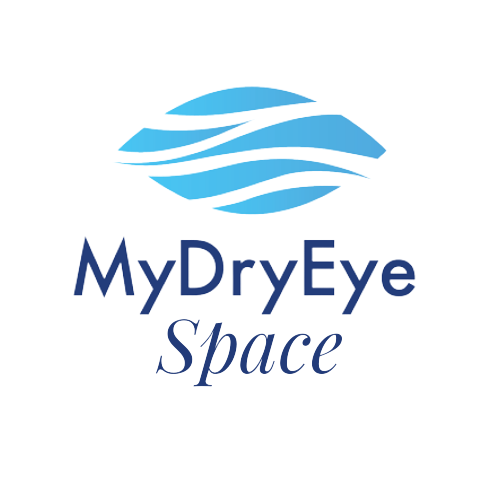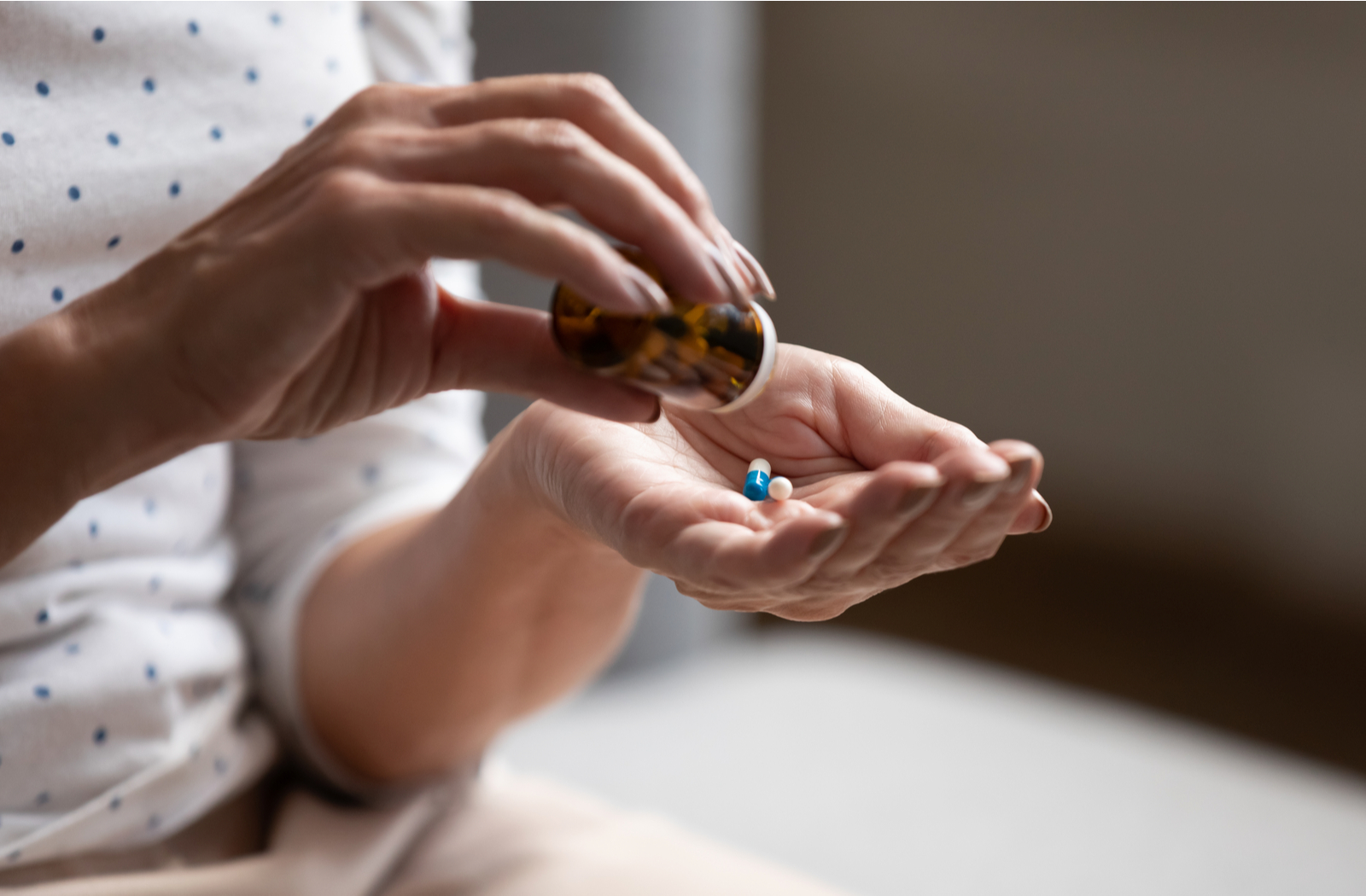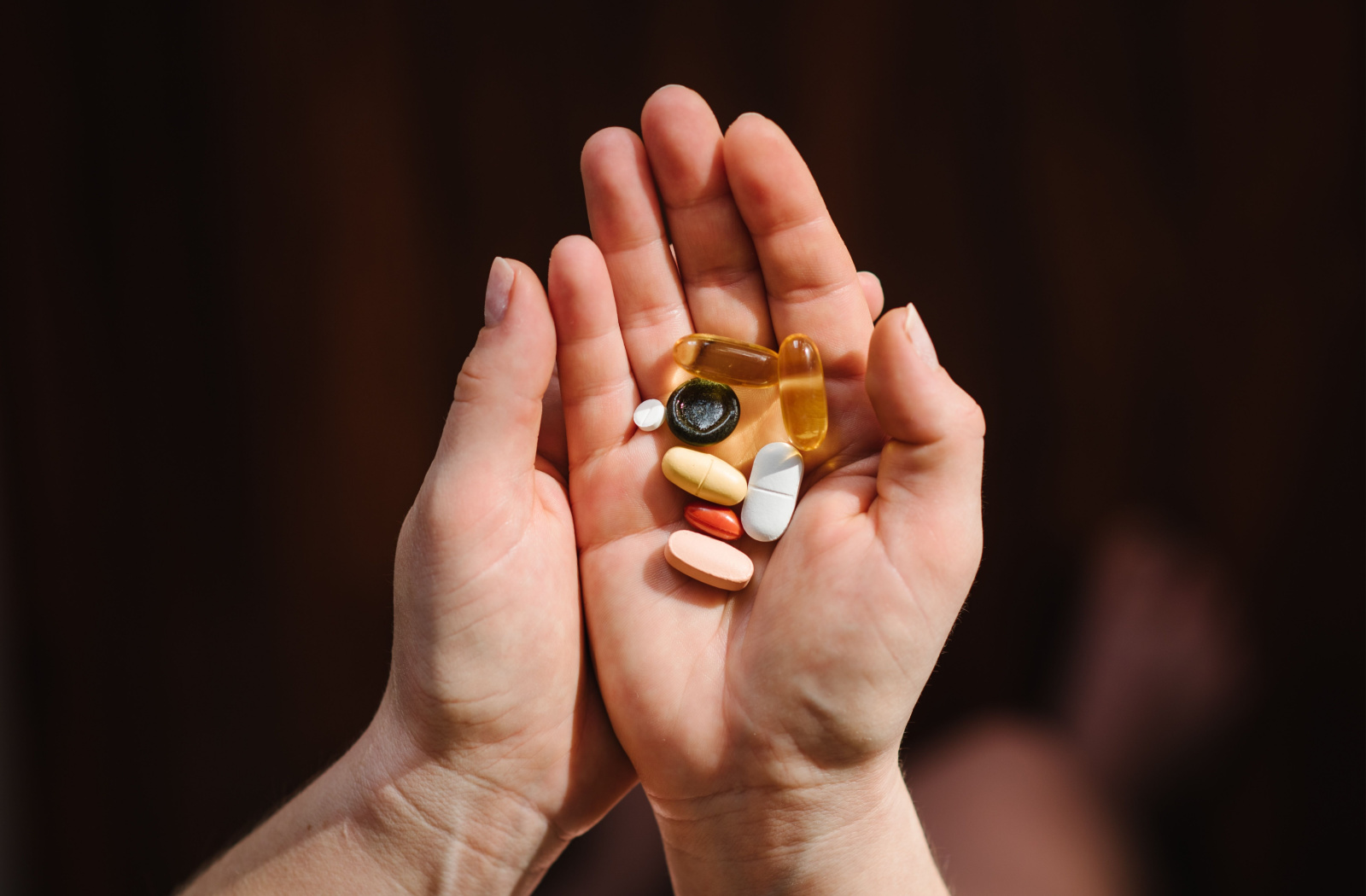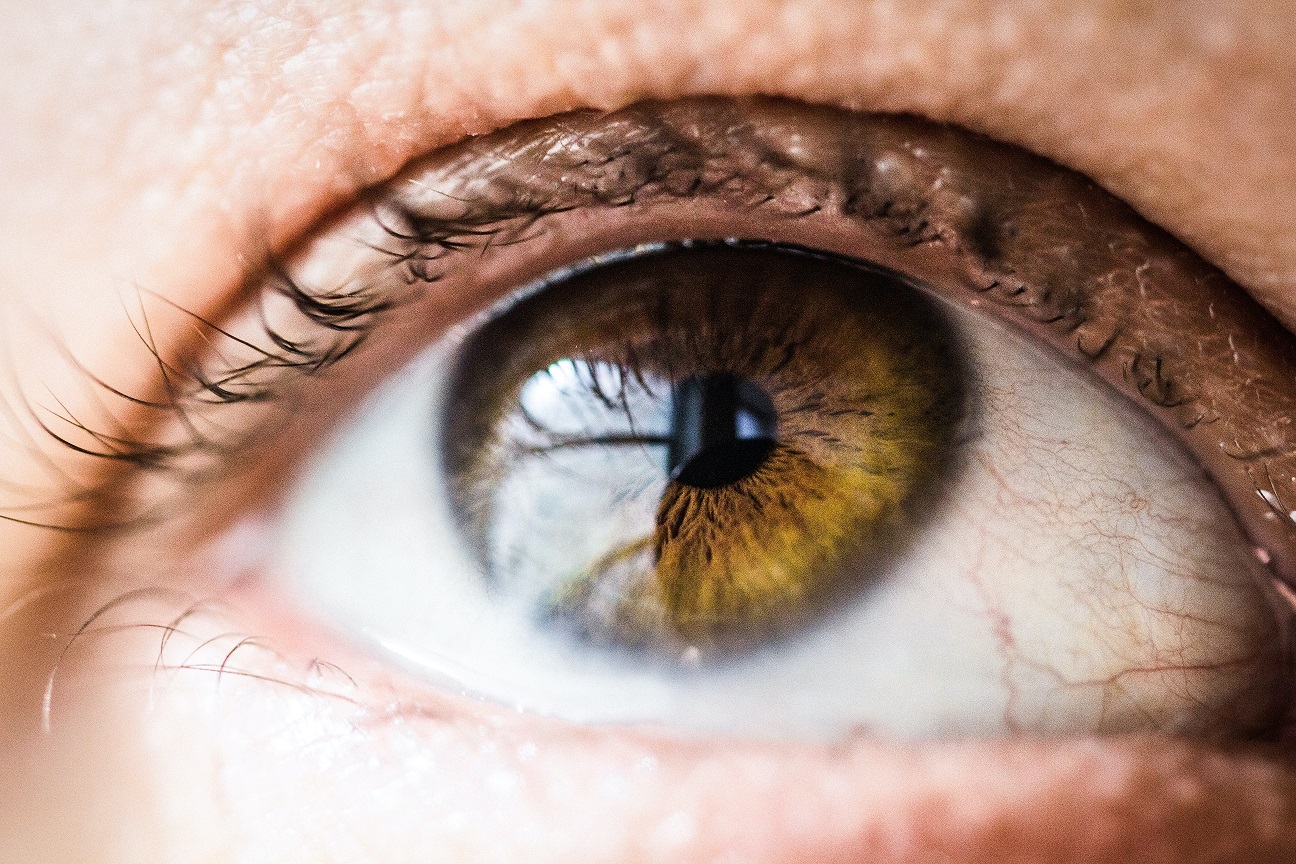We all tend to need medication in our lives at some point, but when that medication has side-effects, we tend to hear alarm bells in our heads. Still, a patient takes medication for a medical reason, so it’s best to learn how to better manage symptoms that may arise.
Knowing what medications can cause dry eye allows you to prepare and seek relief before you start to suffer symptoms that may fall into different categories of dry eye. In some cases, this knowledge can lead to a plan for dry eye management. We put together a list of 11 types of medication to help identify some potential causes of dry eye.
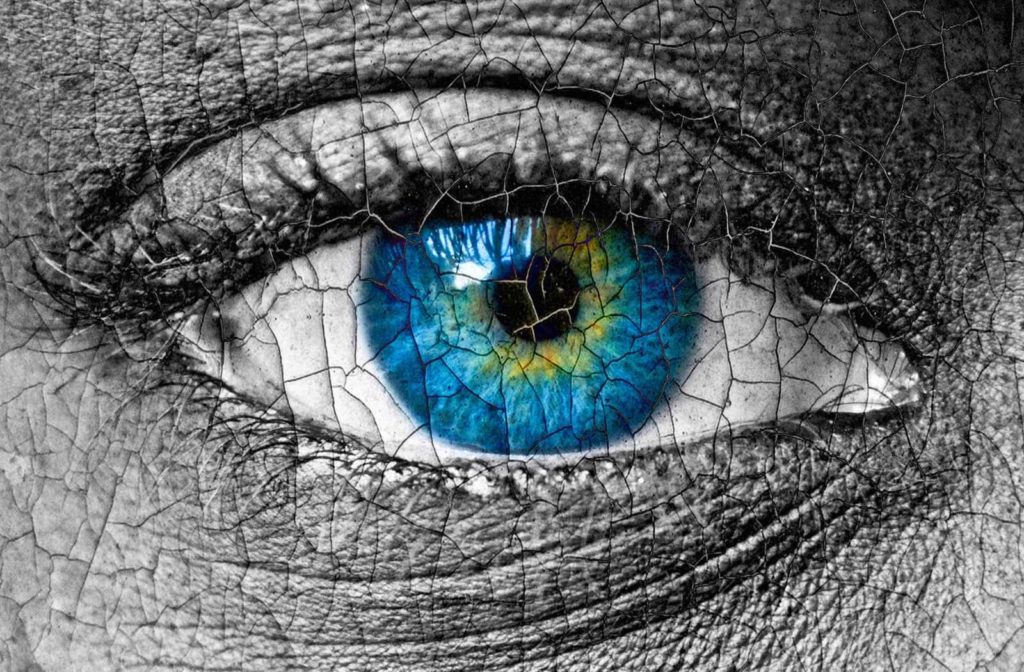
How the Tear Film Works
To understand how medications interfere with the production of tears, you might want a reminder on how your eyes stay lubricated, the lack of which leads to dry eye symptoms.
The thing that separates your cornea, a clear tissue that focuses images into the back of your eye, from open air is the tear film. The natural level of tears in your eye is made up of 3 layers.
From outside in, there’s the oil layer (aka lipid layer), the water layer (aka the aqueous layer), and the mucin layer (aka the mucous layer). The meibomian glands are responsible for the production of the oil layer, while the lacrimal gland produces the aqueous layer.
If any layer has deficient production, it can throw out the balance of your tear film composition, leading to some type of dry eye. Now let’s go over some medication categories that can upset that balance.
Mood Stabilizers
Mood stabilizers can sometimes cause dry eye, especially antidepressants. They work by blocking signals between nerve cells, which can lead to insufficient production of either the water layer of your tear film or the oil layer.
Antidepressants
These mood stabilizers sometimes have an adverse effect while they’re working, unintentionally blocking lacrimal glands, which control water production for the aqueous layer.
Not all antidepressants work this way. Tricyclic antidepressants do, but SSRIs don’t. Selective serotonin reuptake inhibitors (SSRIs) tend to work in the brain between neurons, rather than on the central nervous system, so they won’t interact as much with the body’s glands. Even so, SSRIs can also cause dry eyes.
Antihistamines
Antihistamines counteract allergic reactions like rhinitis, urticaria, dermatitis and other systemic allergies. But in doing so, they tend to hinder production in both the aqueous and the mucin layers.
Benadryl and Claritin have been reported to have these side effects for some. Some newer, more site-specific antihistamines (Zyrtec, Clarinex, and Allegra) have less reported ocular dryness.
Decongestants
Decongestants affect mucous production, which decisively hinders the mucin layer. The mucin layer acts as the glue for holding the tear film against the eye’s surface — so dry eye symptoms can be severe.
Hormone Replacements & Birth Control
For some unknown reason, hormone replacement therapy (HRT), an artificial source of estrogen and progesterone, appears to interfere with adequate aqueous layer production. The same is true for some oral contraceptives like birth control. There’s about a 29% increase in dry eye symptoms when taking estrogen and progesterone together compared to estrogen alone.
Hypertension Medication
High blood pressure meds fall under hypertension medication. They deploy beta-blockers to the bloodstream for decreased blood pressure. They can affect the lacrimal gland, leading to dry eye symptoms. Beta-blockers also seem to induce a loss of feeling in the cornea and overall eye irritation.
Acne Control Medication
Vitamin A, and its derivatives, treat several kinds of acne and psoriasis effectively. But Isotretinoin (13-cis-retinoic acid) is a form of vitamin A that infiltrates the eye through the lacrimal gland — which in turn hinders meibomian gland production.
That means that although water production is doing fine, the oil layer underperforms, leading to dry eye symptoms. It can take months for the tear film to return to normal after discontinuing this type of medication.
Parkinson’s Disease Medication
Like some antidepressants, medication for Parkinson’s disease involves blocking overactive receptors between nerves and muscles. Glands like the lacrimal or meibomian glands can be affected because they’re connected to the central nervous system.
Pain Relievers
Pain relievers from ibuprofen to Darvocet-N and Lortab all produce dry eye symptoms as a side effect. Ibuprofen, in particular, can produce other side effects like blurred vision, refractive changes, diplopia and colour vision changes.
Gastrointestinal Medications
This category has multiple medications with a dry eye side effect, including Prevacid (lansoprazole, Takeda), Prilosec (omeprazole, Procter & Gamble), Nexium (esomeprazole magnesium, AstraZeneca), Zantac (ranitidine, GlaxoSmithKline) and Tagamet (cimetidine, GlaxoSmithKline).
These medications can include H2 receptor inhibitors or proton pump inhibitors (PPIs), each meant to decrease stomach acid production. But these medicinal ingredients can cause dry eye symptoms as a side effect.
Chemotherapy Medications
Chemo drugs are a big category, but one stands out concerning dry eye. Sjogren syndrome is an autoimmune disorder that leads to dry eye symptoms itself. A drug called Cytoxan (cyclophosphamide, Bristol-Myers Squibb) is used to treat both ocular cicatricial pemphigoid and primary Sjogren syndrome. This medication has caused dry eye symptoms in as many as 60% of patients.
Antipsychotic Medications
Thorazine (chlorpromazine, GlaxoSmithKline) has been succeeded mainly by Phenothiazines, including Mellaril (thioridazine, Mutual Pharmaceutical), in the treatment of schizophrenia. But both kinds of medication decrease the watery layer’s production, depending on the dosage.
Coping with Dry Eye Side Effects
Unfortunately, there are more medications or combinations of medications that can lead to dry eye as a side effect. But this list provides a brief overview of the “usual suspects.”Even though there are dry eye side effects, remember to never stop taking your medication unless directed by your doctor.
If you get help from your eye doctor and your general practitioner on determining what side effects are most likely — given your list of medications — there might be a way forward with dry eye relief. Look for an eye doctor near you to start exploring your options!
